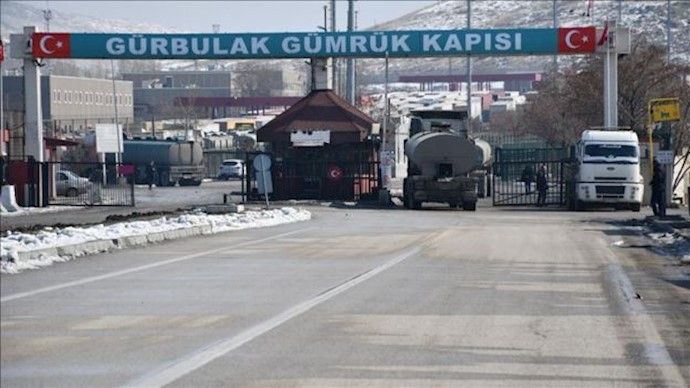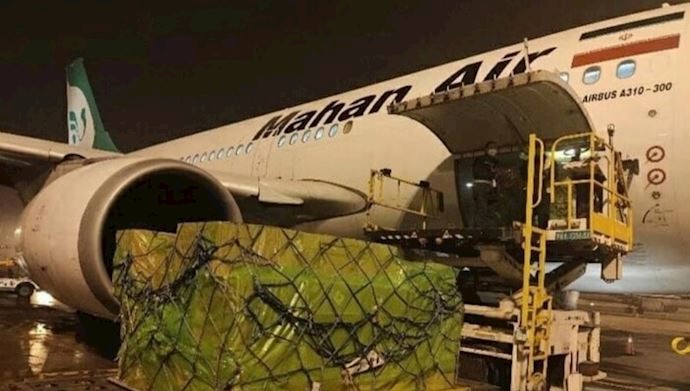Analysis by PMOI/MEK
Iran, February 24, 2020—Following the coronavirus outbreak in China, most countries cancelled flights to this country to prevent the spread of the deadly virus. However, Iran’s regime, careless about the risks to the health of the Iranian people, did not take any precautionary measures. Mahan Air, owned by the terrorist-designated Revolutionary Guards (IRGC), not only continued its flights to China, but also engaged in the transportation of Chinese passengers.
As a result, Iran is now in the grip of the outbreak of the virus in several cities. The regime has officially acknowledged 12 deaths and 64 infections, but local reports indicate that the figures are much higher.
Feb 24 – MEK website reporter from Qom, #Iran
More than 50 people have died. They’re burying the bodies & not giving them to their families.
A 30-year old lady was taken to a hospital. They released her saying she’s OK. She died while being taken to another hospital.#Covid_19 https://t.co/JgabuiDYEX— People’s Mojahedin Organization of Iran (PMOI/MEK) (@Mojahedineng) February 24, 2020
Regime officials lie about flights to China
“Since the day that it was ordered to stop flights from Iran to China, all flights between these two countries have been cancelled,” Reza Jafarzadeh, one of the authorities of the regime’s National Flight Organization, told the state-run Rokna News Agency on February 19.
But since many people were fully aware of the regular flights to China, Jafarzadeh tried to justify his blatant lie. “If you’ve seen any flights to China, those aren’t passenger flights. It’s cargo and it is heavily controlled by the ministry of health, hygiene and medical education.”
Other regime officials have made similar claims. There’s an odd parallel between the regime’s falsehoods in helping spread of the coronavirus and its downing of a Ukranian passenger plane. In January, after the suspicious crash of a passenger plane on the outskirts of Tehran, regime officials claimed that the incident was due to a technical defect. But it later became clear that the IRGC had shot down the plane with two missiles.
After spread of coronavirus, Iran becomes isloated
While the mullahs ruling Iran pay no attention to the health and well-being of the people and were more concerned with creating an impression of a high voter turnout in the February 21 parliamentary elections, other states were busy adopting safeguards to prevent the entrance of the virus in their country.
After it became obvious that the coronavirus has become widely spread across Iran, neighboring countries started closing their borders with Iran and canceling flights to and from this country. Turkey, Iraq, Afghanistan, and Pakistan have taken such measures. Kuwait has also suspended flights to Iran and is barring ships from Iran from docking at its ports.
Kuwait said it is evacuating 750 Kuwaiti citizens on five flights. On Monday, Kuwait’s KUNA news agency reported that three people, including a Saudi national, who returned from Iran were infected by the new coronavirus.
Jordan also began denying entry of non-Jordanians coming from Iran. Saudi Arabia has ordered anyone traveling from Iran to wait at least 14 days before entering the kingdom. Infected travelers from Iran already have been discovered in Lebanon and Canada.

Bazargan border line between Iran and Turkey closed down
Hearing the truth from neighboring countries
While it has become that the coronavirus outbreak in Iran has reached critical levels, regime officials continue to try covering up their criminal behavior in not taking the necessary measures to prevent the spread of the virus. Like all other natural disasters, regime officials refrain from declaring figures and statistics about the outbreak, and whenever a government body declares news about the coronavirus, another government agency denies it.
Interestingly, news about Iran’s coronavirus outbreak is being heard from officials of other countries. Fahrettin Koca, the health minister of Turkey, shared with the Turkish national television news he had received from his Iranian counterpart, and it became evident that the real count of coronavirus infections in Iran is much greater than regime officials had admitted.
According to Koca, 758 people in Iran are suspected to be infected with coronavirus, 18 have been tested positive and five had died. And this was at the time that the regime had only acknowledged two deaths in Qom.
Hiding the truth helped spread the coronavirus across Iran
According to state-run news organizations, signs of coronavirus had been witnessed months before. But since the regime had scheduled to hold pro-government rallies on the anniversary of the 1979 revolution and was also planning for the parliamentary elections, it did not let the public know of the news for fear of low participation in the events.
According to the state-run Khabaronline news website, “The public relations manager of the health ministry said, ‘I’m sick with the stories of the coronavirus. It’s been 45 days that we’re saying we haven’t witnessed coronavirus [cases in Iran], but some say that they’ve witnessed these cases but aren’t declaring it because of the revolution anniversary rally. Then they said it was because of the elections that they didn’t say it. And then they say it’s because of the upcoming Nowruz (New Year) and they’re not declaring it so that it doesn’t affect the people’s celebrations. The only person who’s left to deny coronavirus cases in Iran is the UN Secretary General.’”
Had the health and safety of the people had the slightest priority for regime officials, they would have taken precautionary measures and countermeasures as soon as they saw the first signs of possible coronavirus infections in Iran. Other countries where cases were witnessed canceled public events and engaged in widespread disinfection and sanitation efforts and educated the people on ways to protect themselves.
But for the regime, whose main priority is to maintain its tyrannical rule, anything that can cause public outrage must be concealed at all costs. And this is why the regime effectively allowed the virus to spread to several cities while it knew all along that the people were in grave danger.
On Saturday, the state-run news website Arman published an article about the reasons for the spread of the coronavirus, in which it wrote, “While officials of the health ministry could have shared the information with the people, they only declared the cases in Qom with much delay and after denying letters that were published on social media. Of course, the lack of communication in recent crises such as the downing of the Ukrainian airplane and refraining from declaring the casualties of the [November uprisings] have confused the people and negatively affected their trust.”





